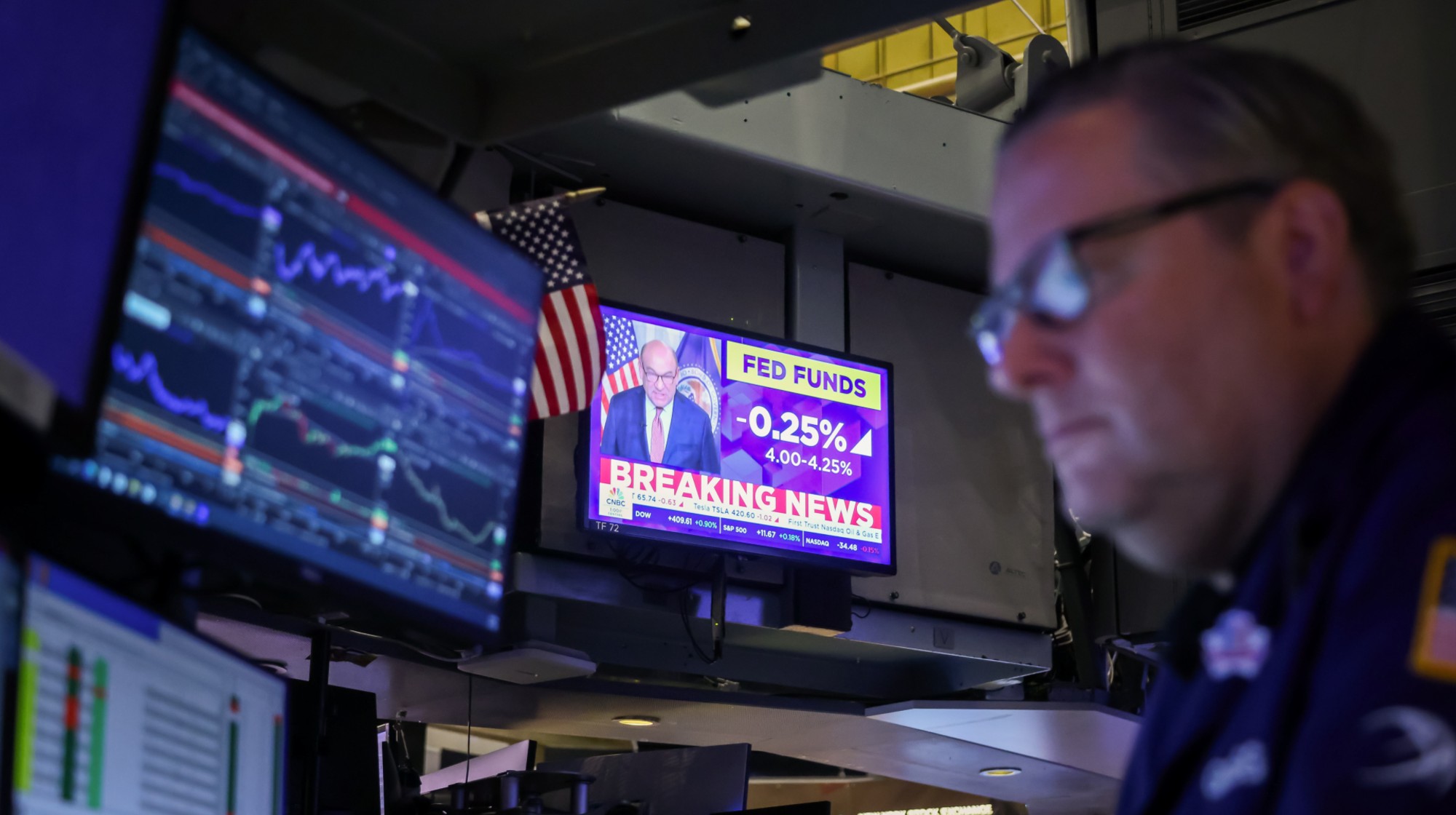Labor: Job growth complicates inflation fight
New numbers suggest labor shortages as a contributor to inflation

A free daily email with the biggest news stories of the day – and the best features from TheWeek.com
You are now subscribed
Your newsletter sign-up was successful
The smartest insight and analysis, from all perspectives, rounded up from around the web:
In this bizarro economy, good news can also mean bad news, said Catherine Rampell in The Washington Post. The U.S. added 261,000 jobs in October, leading Democrats to brag last week about "record-breaking job growth." Yet the strong demand for workers "is likely still troubling central bank officials," who have pointed to labor shortages as a contributor to inflation, since desperate employers typically raise wages to attract or retain workers. So the Fed wants "signs that the labor market is solid but cooling a little." It didn't get that perfect Goldilocks number. Though the unemployment rate ticked up slightly, to 3.7 percent from 3.5 percent in September, these are still "not the kinds of numbers you would expect to see if the economy were actually in recession." That suggests the Fed will keep raising interest rates to make borrowing more costly, which should force businesses to tighten their belts.
The Fed is caught between two objectives, said Matthew Boesler in Bloomberg Businessweek. In addition to its more traditional mandate to maintain price stability, it is "rare among central banks for having an employment mandate." In 1978, Congress established a 4 percent target for the U.S. jobless rate "and directed the White House to work in concert with the Fed to achieve it." But during bouts of inflation like today, the balancing act of keeping inflation low and employment high is trickier. In 1981, then – Fed chair Paul Volcker said he doubted the central bank could shoot for 4 percent unemployment while battling inflation; unemployment rose to nearly 11 percent by 1982. Today's Fed chair, Jerome Powell, "has a strikingly similar message."
The Week
Escape your echo chamber. Get the facts behind the news, plus analysis from multiple perspectives.

Sign up for The Week's Free Newsletters
From our morning news briefing to a weekly Good News Newsletter, get the best of The Week delivered directly to your inbox.
From our morning news briefing to a weekly Good News Newsletter, get the best of The Week delivered directly to your inbox.
There are anecdotal signs of job growth weakening, said Ben White in Politico. In addition to numerous mass layoffs in the tech sector recently (see Technology, p.20), "dozens of executives on quarterly earnings calls" have discussed hiring freezes and layoffs as they monitor consumer demand. They are sending the message that "if demand drops, companies will probably move quickly to reduce costs." Even as executives give warnings, though, many of them "are still hiring on all cylinders," said Justin Lahart in The Wall Street Journal. Mass layoffs at Twitter command outsize media attention, but they represent "roughly 0.005 percent of the 153.3 million jobs in the U.S." U.S. companies announced 33,843 job cuts in October — a 32 percent increase from last year but "still well below October 2019's 50,275." And some sectors, such as leisure and hospitality, are still making up for jobs lost during the pandemic.
The job market is still tighter than the Fed wants, said Jonathan Levin in Bloomberg, but some of the latest numbers still provide "a glimmer of hope" for an economic "soft landing." Average hourly earnings growth is slowing. That may sound undesirable, but it's positive news after a period in which employees had extraordinary bargaining power over their bosses. If those surging wage pressures can resolve themselves to a certain degree "without significant job loss," it would be a "favorable outcome for both labor markets and inflation."
This article was first published in the latest issue of The Week magazine. If you want to read more like it, you can try six risk-free issues of the magazine here.
A free daily email with the biggest news stories of the day – and the best features from TheWeek.com
-
 Why is the Trump administration talking about ‘Western civilization’?
Why is the Trump administration talking about ‘Western civilization’?Talking Points Rubio says Europe, US bonded by religion and ancestry
-
 Quentin Deranque: a student’s death energizes the French far right
Quentin Deranque: a student’s death energizes the French far rightIN THE SPOTLIGHT Reactions to the violent killing of an ultraconservative activist offer a glimpse at the culture wars roiling France ahead of next year’s elections
-
 Secured vs. unsecured loans: how do they differ and which is better?
Secured vs. unsecured loans: how do they differ and which is better?the explainer They are distinguished by the level of risk and the inclusion of collateral
-
 Will Trump’s 10% credit card rate limit actually help consumers?
Will Trump’s 10% credit card rate limit actually help consumers?Today's Big Question Banks say they would pull back on credit
-
 What will the US economy look like in 2026?
What will the US economy look like in 2026?Today’s Big Question Wall Street is bullish, but uncertain
-
 Is $140,000 the real poverty line?
Is $140,000 the real poverty line?Feature Financial hardship is wearing Americans down, and the break-even point for many families keeps rising
-
 Fast food is no longer affordable for low-income Americans
Fast food is no longer affordable for low-income AmericansThe explainer Cheap meals are getting farther out of reach
-
 Why has America’s economy gone K-shaped?
Why has America’s economy gone K-shaped?Today's Big Question The rich are doing well. Everybody else is scrimping.
-
 From candy to costumes, inflation is spooking consumers on Halloween this year
From candy to costumes, inflation is spooking consumers on Halloween this yearIn the Spotlight Both candy and costumes have jumped significantly in price
-
 Why are beef prices rising? And how is politics involved?
Why are beef prices rising? And how is politics involved?Today's Big Question Drought, tariffs and consumer demand all play a role
-
 Fed cuts interest rates a quarter point
Fed cuts interest rates a quarter pointSpeed Read ‘The cut suggests a broader shift toward concern about cracks forming in the job market’